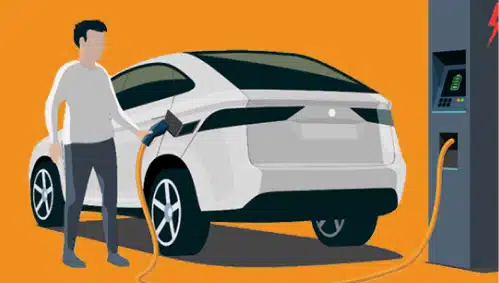The Government has announced a proposal to:
• remove fringe benefits tax (FBT) on eligible electric cars from 1 July 2022, and
• include the value of these exempt car fringe benefits in the calculation of an employee’s reportable fringe benefits amount.
This measure is not yet law. If enacted, this will apply from the FBT year beginning 1 April 2022.
How the Electric Vehicle FBT exemption will work
The proposed FBT exemption is intended to apply to cars provided by an employer to an employee under the following conditions:
Low and zero emission cars
• Battery electric vehicles;
• Hydrogen fuel cell electric vehicles; and
• Plug-in hybrid electric vehicles. Be careful here because this doesn’t include all hybrid vehicles. To qualify the car needs to be ‘plug-in’. A car that has an internal combustion engine will not meet requirements unless it is able to be fuelled by a battery that can be recharged by an off-vehicle power source.
The car was first held and used on or after 1 July 2022
• Where the car is first held and used on or after 1 July 2022. Provided the conditions of the exemption are met, an electric car that was ordered prior to 1 July 2022, but was not delivered until after 1 July 2022 would be eligible for the exemption (even if an employer acquired legal title to the car before 1 July 2022). However, a car delivered to you prior to 1 July 2022 would not qualify.
• A second-hand electric car may qualify for the exemption, provided that the car was first purchased new on or after 1 July 2022.
Value below luxury car tax threshold for fuel efficient vehicles
• The value of the car at the first retail sale must be below the luxury car tax threshold ($84,916 in 2022-23) for fuel efficient vehicles. The luxury car tax threshold generally includes GST and customs duty but excludes other items such as service plans, extended warranties, stamp duty and registration.
If an electric car qualifies for the FBT exemption, then associated benefits relating to running the car for the period the car fringe benefit is provided, can also be exempt from FBT. Government modelling states that if an EV valued at about $50,000 is provided by an employer through this arrangement, the FBT exemption would save the employer up to $9,000 a year.
Can I salary sacrifice an electric car?
Assuming your employer agrees, and the car meets the criteria, salary packaging is an option. While some FBT concessions are not available if the benefit is provided under a salary sacrifice arrangement, the exemption for electric cars will be available. For a salary sacrifice arrangement to be effective for tax purposes, it needs to be agreed, documented, and in place prior to the employee earning the income that they are sacrificing.
Government modelling suggests that for individuals using a salary sacrifice arrangement to pay for a $50,000 electric vehicle, the saving would be up to $4,700 a year.
Who cannot access the FBT exemption
Your business structure makes a difference
By its nature, the FBT exemption only applies where an employer provides a car to an employee. Partners of a partnership and sole traders will not be able to access the benefits of the exemption as they are not employees of the business. When it comes to beneficiaries of a trust and shareholders of a company it will be important to determine whether the benefit will be provided to them in their capacity as an employee or director of the entity.
Exemption is limited to cars
As the FBT exemption only relates to cars, other vehicles like vans are excluded. Cars are defined as motor vehicles (including four-wheel drives) designed to carry a load less than one tonne and fewer than nine passengers.




